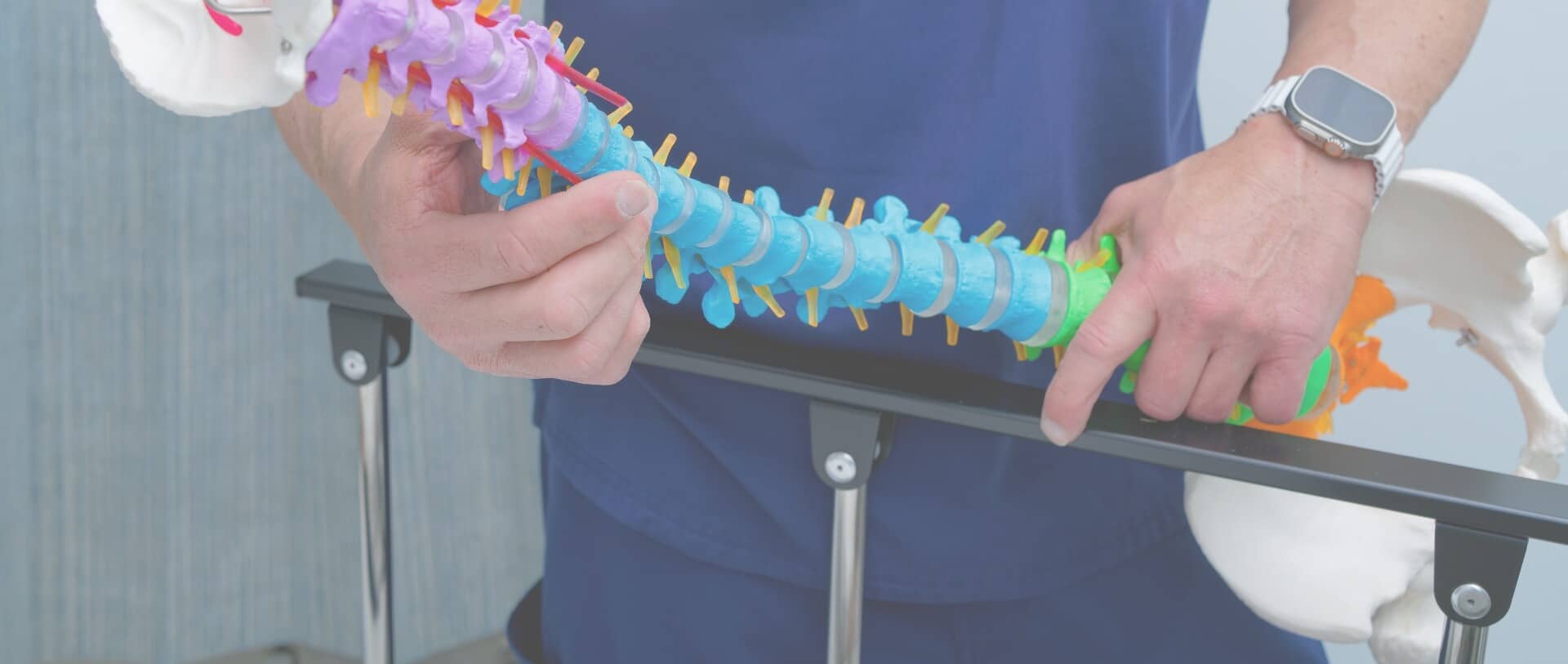
CONDITIONS
Neck Compression (Cervical Spondylotic Myelopathy (CSM))
Cervical spondylotic myelopathy is a condition that affects the spinal cord in the neck region. Age-related changes in the spine can put pressure on the nerves in this area of the spine, and the compression can cause a loss of sensation, weakness, and pain in the arms, legs, and torso. While CSM can be debilitating, there are treatment options available to manage the symptoms and improve your quality of life, like neck decompression surgery. Seek the expert opinion of Dr. Jamie Gottlieb and his team to determine your best course of action.
What is Cervical Spondylotic Myelopathy (CSM)?
Cervical spondylotic myelopathy, or CSM, refers to a condition in which the spinal cord becomes compressed in the neck or cervical region. Because this condition can lead to compression and dysfunction of the spinal cord and nerves, it is also referred to as neck compression. CSM is a degenerative condition, meaning that it gets worse with age and over time.
What Causes Neck Compression?
Neck compression occurs due to the degeneration of the cervical spine, which leads to the narrowing of the spinal canal. The condition develops gradually and symptoms will typically get worse over time. The most common causes of neck compression include:
- Bone spurs: Bone spurs are how the body responds to wear and tear on the spine. These can reduce the available space for the spinal cord and nerves within the spinal canal
- Disc changes: The intervertebral discs between the vertebrae can lose their water content and height as part of the aging process, which contributes to the narrowing of the spinal canal and compression of the spinal cord.
- Thickening ligaments: The ligaments that support the spine can thicken over time, reducing the space within the spinal canal
- Arthritis: Arthritis in the neck can lead to inflammation and the formation of bone spurs, both of which can lead to compression
- Herniated disc: The inner core of the intervertebral disc leaks into the spinal canal if the disc has herniated. This disc material can put pressure on the spinal cord or nerves
- Trauma: Injuries to the cervical spine can cause damage that leads to neck compression
What are the Symptoms of Cervical Spondylotic Myelopathy?
Symptoms of cervical spondylotic myelopathy can vary in severity and presentation, but they typically develop gradually over time. Common symptoms of CSM include:
- Neck or upper back pain
- Numbness and tingling in the arms, hands, or even legs
- Muscle weakness
- Balance and coordination issues
- Changes in reflexes
- Clumsiness or problems with fine motor skills
- Bladder and bowel dysfunction
How is Cervical Spondylotic Myleopathy Treated?
While Dr. Gottlieb often recommends non-surgical treatment for cervical spondylotic myelopathy first, he also offers several surgical procedures to treat the condition. If conservative treatment for your neck compression symptoms like medication, physical therapy, or bracing fails to provide relief, cervical spinal decompression surgery may be recommended.
Cervical decompression surgery involves removing the structures that are compressing the spinal cord, such as bone spurs or a herniated disc. The goal of this surgery is to create more space in the spinal canal and relieve pressure on the spinal cord.
In addition to neck decompression surgery, Dr. Gottlieb may also choose to perform a spinal fusion if the spine needs further stabilization. This involves joining two or more vertebrae using bone grafts, screws, and rods. Fusion surgery prevents further movement at the affected spine level.

Top Quality Care at Gottlieb Spine
Cervical spondylotic myelopathy can significantly impact your life by causing discomfort, weakness, and coordination issues. However, with proper treatment at Gottlieb Spine, we can improve your quality of life and help you reach optimal health. Whether you pursue non-surgical options or need spine surgery, Dr. Gottlieb and his team can guide you toward the most suitable approach for your condition. Contact us today to schedule a consultation.
SCHEDULE A CONSULTATION